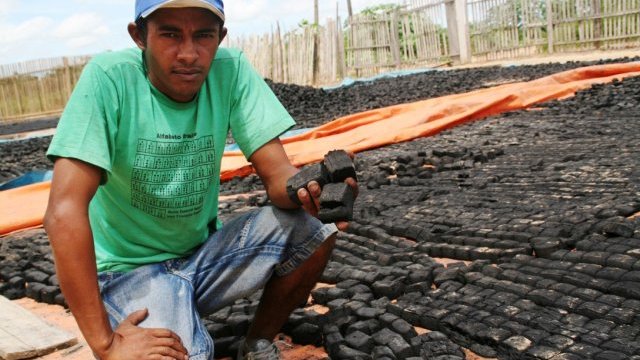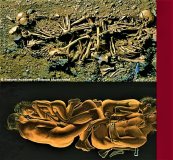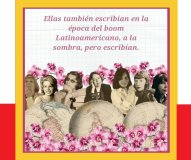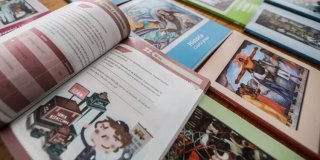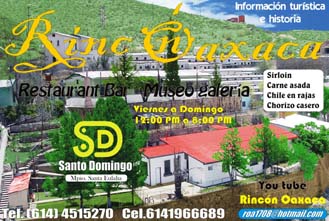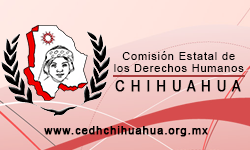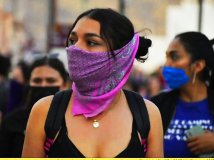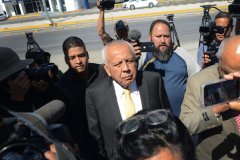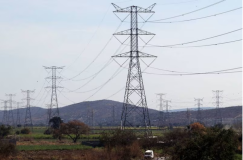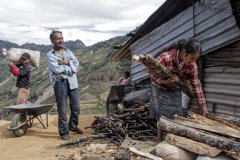Buscar
Director: Froilán Meza Rivera
redaccion@cronicadechihuahua.com
La Crónica de Chihuahua - Relatos urbanos, ciencia, cultura y noticias.
Slavery and what we buy
**Some of the products we buy today may have been produced through the use of slave labour.
La Crónica de Chihuahua
Diciembre de 2012, 17:17 pm
By Lydia Cacho/ Mexican journalist
How does slavery occur in the supply chain?
There is evidence of slavery in different stages of the supply chain from the production of raw materials, for example cocoa and cotton farming, to manufacturing goods such as hand-knotted rugs and even at the final stage, when the product reaches the market.
How does the supply chain work?
Typically the final product you purchase has passed through a long chain of producers, manufacturers, distributors and retailers who have all participated in its production, delivery and sale.
It can therefore be very difficult to track a component of an end product back to a particular producer, for example cotton in a T-shirt back to a particular cotton farm.
For this reason it is not always possible to certify that a product has or has not been produced using slavery.
However the way in which companies operate can affect the likelihood of slavery being a part of the final product. If a brand gives its supplier a large order with a short turnaround time beyond the suppliers’ capacity, this could increase the risk of slavery as the supplier may subcontract work to factories or workers that are not regulated by the same standards as the supplier.
Company buyers may negotiate such low prices that suppliers are forced to push down the price it pays for the materials it needs, which can have a knock-on effect on those involved in the production of raw materials, increasing the likelihood of the use of forced labour.
Companies should ensure that the Universal Declaration of Human Rights is respected across its whole supply chain to ensure that it is not inadvertently supporting slavery. For example, extreme poverty can lead workers into situations in which they find themselves enslaved and the government may not be properly enforcing labour laws and inspecting workplaces.
Ricardo’s story
Ricardo was made to live in the back of a locked removal van and forced to work on a farm picking tomatoes in Florida. He was forced into debt as his ‘employer’ charged punitive costs for food, rent etc. After more than a year he managed to escape through the ventilation hatch of the truck.
Florida tomatoes are bought by restaurant and fast-food chains. Anti-Slavery International supported the Coalition of Immokalee Workers’ campaign, which succeeded in Burger King signing an agreement with them to ensure workers’ rights are respected. The agreement includes a zero-tolerance guideline for suppliers regarding certain unlawful activities such as forced labour.
Core labour standards
Labour standards are developed, agreed and enforced by the International Labour Organization, which is a part of the United Nations. Human rights groups such as Anti-Slavery International call on governments to apply these standards. These standards are binding on governments and seek to eliminate forced labour, child labour and discrimination in employment, while ensuring respect for the right to freedom of association and collective bargaining. Companies’ codes of conduct and schemes should meet these standards.
Transnational corporations hold considerable power and it is vital that they are held to account for the way their workers, whether employed directly or indirectly, are treated. The United Nations Human Rights Council has called upon countries to recognise that they have a duty to protect against human rights abuses committed by companies. Companies also have a responsibility to put in place systems that ensure they are respecting human rights. Finally, victims need better and easier ways in which they can access justice. Anti-Slavery International supports this approach by providing companies with information to improve their systems so that they can identify, prevent and eradicate slavery.
What can you do?
Ask questions when you shop. Does your local retailer stock fair trade products? Use your consumer power to show you care — buy fair trade marked products and Rugmark carpets, a certification scheme for rugs and carpets made without illegal child labour. In supermarkets, look out for the Fairtrade Mark. This is the best available guarantee that a product has not been produced using slave labour because goods can only be Fairtrade certified if they have complied with Fairtrade standards, which incorporate international human rights standards. For retail chains, write a letter to the company headquarters asking what measures the company is taking to identify, prevent and end the use of forced labour and slavery from their supply chain. Ask if the company is a member of the ETI and ask the company to explain how it is involved.
Why not boycott?
In certain situations boycotting specific goods or countries can actually make the situation worse and undermine the economy of an already poor country. A boycott could hurt those in slavery-like conditions as well as those employers who are not exploiting their workers, and worsen the poverty that is one of the root causes of the problem. Support fair and ethical trade initiatives instead and use consumer power to encourage retailers and companies to move to the Fairtrade scheme.
take action
Take action on slavery and what we buy
Take action on forced child slavery in Uzbekistan’s cotton industry
Anti-slavery International’s programme
Working with Business
Slavery and the supply chain programme
Our resources
Slavery and what we buy reports
Products of slavery poster
©2024 La Crónica de Chihuahua - Relatos urbanos, ciencia, cultura y noticias
La Crónica de Chihuahua es un diario independiente, enfocado a describir las singularidades y la cotidianidad de la comunidad chihuahuense.

